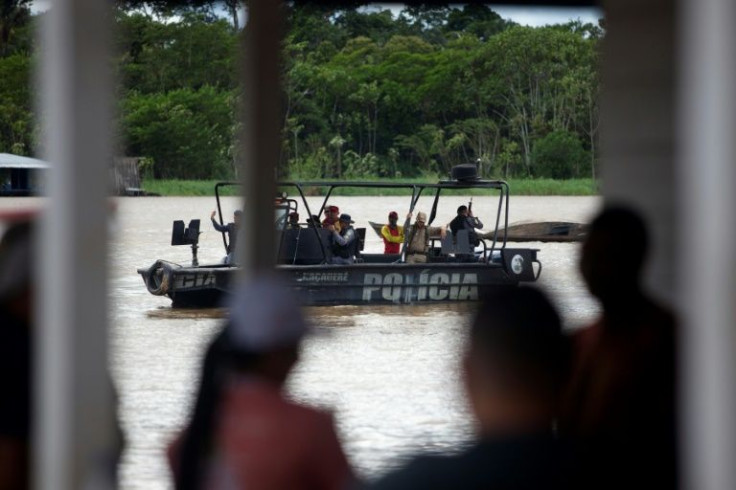What We Know In Case Of Missing British Journalist And Amazon Expert
The search for a British journalist and a Brazilian indigenous expert who vanished deep in the Amazon went into its 10th day Tuesday amid fading hopes of finding them alive and persistent international pressure to resolve the case.
This is what we know so far:
Veteran freelance journalist Dom Phillips, 57, has worked in Brazil for the past 15 years, reporting for media including The New York Times, Washington Post, Financial Times and Guardian, where he is a regular contributor.
Phillips is an impassioned defender of the Amazon. He went missing in a remote region called the Javari Valley while doing research for a book on sustainable ways to protect the world's largest rainforest.
Bruno Pereira, 41, is an expert who was on leave from his job with the Brazilian government's Indigenous affairs agency, or Funai, and a well-known advocate for these communities. He was accompanying the Briton as a guide on Phillips' second trip to the region since 2018.
Pereira was the regional coordinator of Funai in Atalaia do Norte, the town where Phillips was headed when the two of them vanished. The Javari Valley is rife with illegal fishing, logging, mining and drug trafficking. Pereira's work defending Indigenous people drew frequent threats against him from criminal gangs operating in the area.
Both of the missing men are married and Pereira has three children.
Phillips and Pereira were last seen on the morning of Sunday, June 5, in the village of Sao Gabriel, not far from Atalaia do Norte, where they were headed by way of the Itaquai River.
They were traveling in a new motorized boat with enough fuel to get where they were going. Their journey had started days earlier at Lake Jaburu, where they had interviewed local people.
The Javari Valley, where the men disappeared, is a remote jungle region home to 26 different Indigenous peoples, many of which live in isolation.
Authorities warned that the region is "complex" because of the presence of rogue miners, loggers and fishermen who invade protected Indigenous lands to exploit their resources.
What is more, drug trafficking in the region has grown in recent years. The area is used as a conduit to transport drugs produced in Peru and Colombia, both of which border Brazil.

The search is being led by Indigenous people and Brazilian security forces.
On Sunday the security forces said they found personal items belonging to the two, including Pereira's health card, pants and boots, as well as Phillips's backpack and clothing.
Officials said these things were found in the water near the home of Amarildo da Costa Oliveira, the only person detained in the case so far.
Witnesses saw this 41-year-old fisherman in a motor boat following that of Phillips and Pereira at high speed before they disappeared.
Police found blood on a tarp in Oliveira's boat. He denies any involvement.
Authorities are analyzing the blood and what are believed to be human remains found in the area, and results are expected this week.
President Jair Bolsonaro said Monday, "the evidence leads us to believe something bad was done to them, because human innards were found floating in the river, which are now undergoing DNA testing."
It is not clear if he was referring to the same remains that the police said they had found.
The search for the men and their boat continues.
Confusion arose Monday when relatives of the journalist said a Brazilian diplomat in London told them two bodies had been found and the remains were being analyzed to see if they belonged to Phillips or Pereira.
But Federal Police, who are the official spokesperson in this drama, denied that bodies had been found. Indigenous people taking part in the search also issued a denial.
The federal government has been criticized by environmental activists, international agencies and Brazilian justice officials for alleged slowness and lack of coordination in the search.
Bolsonaro at first said Phillips and Pereira had embarked on an "unadvisable adventure" by traveling in a dangerous area without protection. This drew a rebuke from civil society organizations which defended their work to preserve the Amazon.
© Copyright AFP 2024. All rights reserved.







